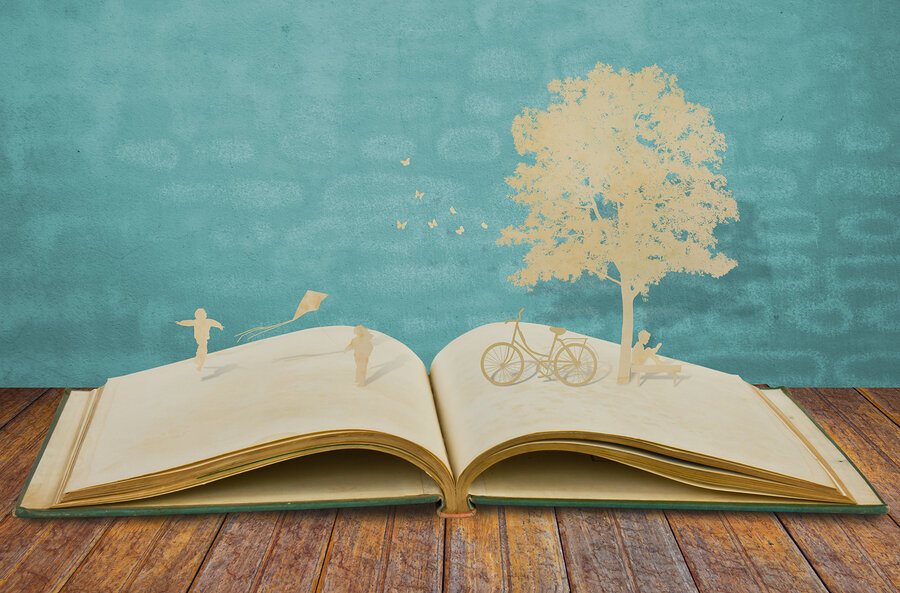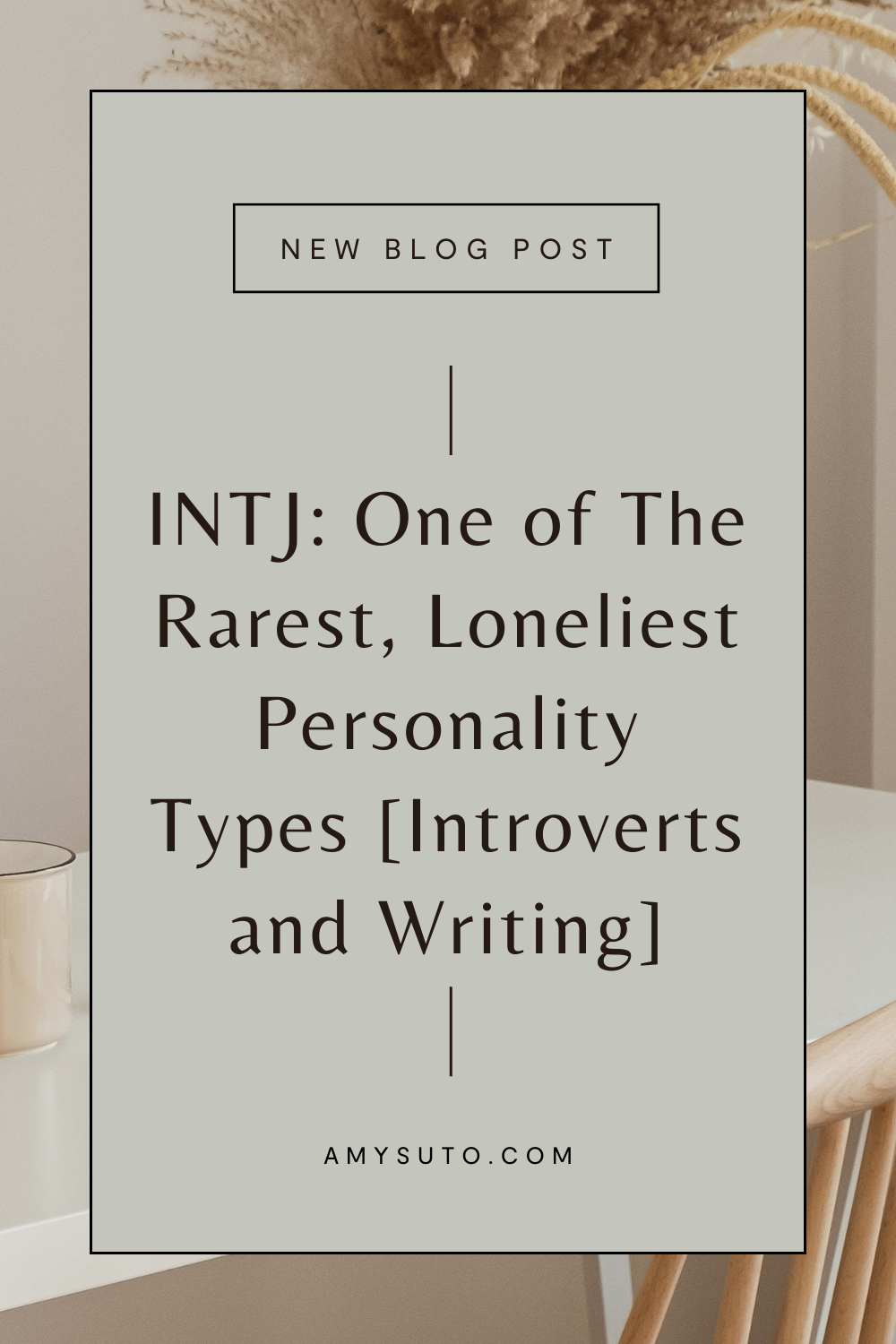INTJ: One of The Rarest, Loneliest Personality Types [Introverts and Writing]
I hadn't put much stock in personality types up until now. I treated them like the kinds of useless personality quizzes you find in the shiny pages of equally-useless magazines like Seventeen. But when I started reading more about INTJs, I began to realize that the kind of isolation I sometimes felt (and felt unable to express) even when surrounded by people I cared about had roots in my personality type.
16 Personalities says this about INTJs:
It's lonely at the top, and being one of the rarest and most strategically capable personality types, INTJs know this all too well. INTJs form just two percent of the population, and women of this personality type are especially rare, forming just 0.8% of the population - it is often a challenge for them to find like-minded individuals who are able to keep up with their relentless intellectualism and chess-like maneuvering. People with the INTJ personality type are imaginative yet decisive, ambitious yet private, amazingly curious, but they do not squander their energy. -16 Personalities, "INTJ"
I've always been involved in different social groups. In high school I was co-captain of my JV basketball team, secretary of student government, and spent my time making films with friends. At USC, I've led different teams of people on various film projects and I've been extraordinarily lucky to be able to surround myself with inspiring individuals. On the surface, my life seems unaffected by my INTJ type.
But why are INTJs also perceived as distant? Why can we master career goals in a heartbeat but struggle when it comes to personal relationships? How do INTJs approach writing, and is introversion an advantage?
The INTJ Conflict: Rationalism Vs. Emotion
I'll be honest: even simply admitting feeling lonely or sad in any context feels like an act of extreme weakness. (Even now I'm expecting my future self to smite me as I type for posting anything remotely personal on the internet of all places.)
Fiction is one thing: writing about con artists who rely on anything besides their feelings to get by is easy since it's make-believe. Sort of. There's a reason the characters I'm drawn to are lone wolves, architects of grand plans, and protective of their feelings since they see emotions as a liability. That's why I write about spies and con artists and warriors and thieves: these are all people who prize rationalism over emotion to stay alive.
It's not life or death for me, but you'll be hard-pressed to find me telling you about past heartbreak or rejection. For the USC screenwriting program, we had to write an essay about our most emotional moment. I wrote about taking care of sick kittens through the Arizona Humane Society's Foster Kitten program, which I did for three years in high school. I wrote about how one morning I went to go give one of my favorite three-week-old kittens her medicine and found her, cold and lifeless, in her little bed I had made for her. I cried when I wrote that, and never showed it to anyone other than the anonymous decision-makers who decided to let me into the screenwriting program.
It's a rational decision to keep things from people: I don't tell people my problems because it's better to deal with them myself instead of burdening others, which can make me seem distant.
INTJs and Love
When you break things down by logic, they make sense. I can create solutions and navigate tricky situations to get my shows on the air and projects approved, but when it comes down to discussing matters of the heart? Forget it. Human nature doesn't break down like career goals or steps to solve a problem. I'll over-analyze the situation to pieces until I've given up and moved on, returning to my work.
All roads lead back to my work, and sometimes, it's hard to see that any other path. I'm lucky to be with someone who understands and accepts this about me -- and who is as much of a workaholic as I am.
INTJ Writers
With a natural thirst for knowledge that shows itself early in life, INTJs are often given the title of "bookworm" as children. While this may be intended as an insult by their peers, they more than likely identify with it and are even proud of it, greatly enjoying their broad and deep body of knowledge. INTJs enjoy sharing what they know as well, confident in their mastery of their chosen subjects, but owing to their Intuitive (N) and Judging (J) traits, they prefer to design and execute a brilliant plan within their field rather than share opinions on "uninteresting" distractions like gossip. -16 Personalities, "INTJ"
I think being an INTJ writer is the best of all worlds: us INTJs are imaginative and need fiction as an outlet for what we can't express any other way.
We crave structure and organization, which helps with large projects like novels or TV series. Being introverts means we naturally spend more time on observation and reflection, which is the cornerstone of storytelling.
One of my favorite books is Susan Cain's Quiet: The Power of Introverts in a World That Can't Stop Talking. While I think the power of extroversion is critical, I think it's also an obvious value of our society. Introversion (mistaken for "shyness" -- introversion and shyness are not synonyms) has always been pushed aside as a value and I remember teachers in grade school asking if I was OK and telling my parents I was "quiet" as if this was abnormal.
Introversion and writing makes sense, especially when we consider that 99% of being a writer is sitting in a dark room by yourself making characters you dream up interact on the page. (What doesn't quite make sense is having then to go on marathon pitching sessions around LA, backslapping and taking free waters and selling yourself and your fictional creations to executives and business types when that's the opposite of a writer's true nature.)
Introverts in Hollywood
I wrote a whole new post about this. Check it out!
The Future of INTJs
One of Susan Cain's theories is that personality types are like rubber bands: we can (and sometimes should) stretch who we are and the limits of our personality, but we need to be at peace with who we are. This doesn't mean I'll stop over-analyzing every aspect of my life, but it does mean I'll try and open up when it matters the most.
What to Read Next
Want to learn about the best profession for introverts? Check out my book Six-Figure Freelance Writer: A Holistic Guide on Finding Freedom in Freelancing.
Like this post? Check out more of my most popular blog articles here and subscribe to my weekly Storytelling Secrets newsletter!


